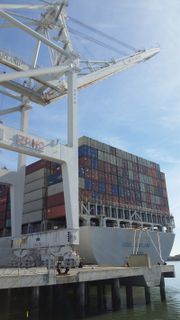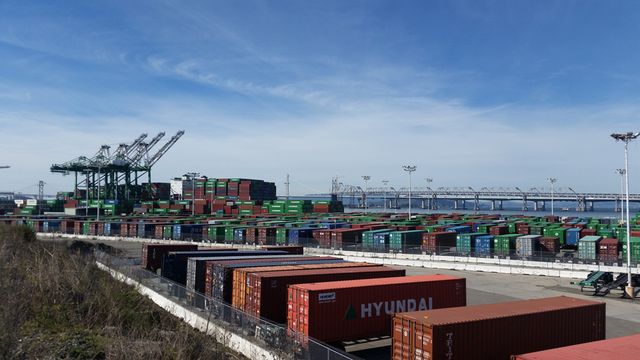Peter Schwarz
The truce in Ukraine agreed by the German chancellor and the presidents of Russia, France and Ukraine after 16 hours of negotiations in Minsk is merely a hiatus in an escalating war. Although few details of the agreement have emerged, Western media outlets declared almost unanimously the inevitable failure of the truce—blaming the Russian president, as usual.
In reality, the Minsk agreement only came about because the Kiev regime, which came to power in a Western-backed putsch a year ago, urgently needs a respite.
The Ukrainian army has been weakened by desertions and a succession of defeats. Fewer and fewer young men are willing to fire on their countrymen and die for a regime that offers nothing but poverty and unemployment. The only forces willing to do battle are ultra-right voluntary forces, over which the Kiev regime has tenuous control.
Financially, Ukraine is bankrupt. Its economic output has slumped by 8 percent, and its foreign currency reserves have shrunk to $6.6 billion—barely enough to fund one month of imports. Immediately after the Minsk agreement was struck, the International Monetary Fund promised a $40 billion aid package to Petro Poroshenko's regime, which could implode under pressure from an impoverished, war-weary population on the one hand, and far-right forces in the state apparatus on the other.
Washington did everything it could to strengthen Poroshenko's hand before the Minsk talks. US sources advocated delivering weapons and training Ukrainian soldiers. US President Barack Obama even placed a personal call to Putin, threatening "rising costs" for Russia if it continued "its aggressive advances in Ukraine".
In Minsk, the Russian delegation made far-reaching concessions—from “full respect for the sovereignty and territorial integrity of Ukraine,” to transferring control of the Russian border to Kiev. According to statements by Merkel and Hollande, Putin also pressed the separatists to agree to the deal. For his part, Poroshenko repeatedly threatened to repudiate the agreement.
What is occurring is not primarily an internal Ukrainian matter, nor a confrontation between Kiev and Moscow, but a far broader geopolitical conflict.
Washington financed the 2004 Orange Revolution in Ukraine and in 2014 supported the coup against Ukrainian President Viktor Yanukovych in order to isolate and crush Russia. For Washington, it is not just a matter of controlling Ukraine, but also of enforcing its supremacy in the Middle East, where Moscow supports the Syrian government against Washington, and in the Far East, where a strategic Russian-Chinese alliance looms.
For the same reasons, Washington is now stoking war in Ukraine. This is the purpose of the proposed arms shipments. They would not enable Kiev to win the war, but to engage Russia in "a drawn-out, larger war [that] makes it more vulnerable on other flanks, such as the restive North Caucasus and Central Asia," as military experts told the Financial Times. "There are just not enough Russian soldiers to fight a war of attrition in Ukraine,” one of them said.
Germany backed the coup in Kiev and the Poroshenko regime as part of its objective to ditch its post-war policy of military restraint and play a greater role in world politics, as announced by the German president Joachim Gauck early last year. By actively intervening in Ukraine, which German armies occupied in both the First and Second World Wars, the German ruling class is following in the footsteps of its traditional policy of expansion to the east.
Washington and Berlin initially acted in concord. They worked closely together to build up the Ukrainian opposition, prepare the coup of February 2014, and strengthen Poroshenko's regime. Recent US demands for military escalation, however, have set off alarm bells in Berlin.
While German imperialism remains intent on integrating Ukraine into the European Union and weakening Russia via economic sanctions, it wants to avoid an escalation of the war. This would have a devastating impact on Germany and all of Europe, which have close economic ties with Russia and depend on Russian energy supplies. A drawn-out war would inevitably spill over into other European countries, cause waves of refugees, and destabilize the entire European Union. This is why Merkel and Hollande campaigned in Minsk for a ceasefire.
At the Munich Security Conference, Merkel was fiercely criticized by US officials. In an editorial Thursday, the weekly Die Zeit complained: "The US's impatience is not directed at Putin but at Chancellor Merkel. Anyone who does not allow enough time for the EU's policy of sanctions to take effect is playing into the hands of the Kremlin. If there is to be an escalation, then let it be with the sanctions!"
The article concludes, "Of course the West must not become divided. For that reason this time the US must cede to Europe's leaders."
Washington is hardly likely to concede.
It was no coincidence that the First World War erupted in 1914 in the Balkans. The region was a crossroads for the overlapping interests of the imperialist powers, which went on to fight a four-year war costing millions of lives. Similarly, the crisis in Ukraine reveals the tensions and contradictions that threaten to plunge the world for a third time into a bloody holocaust that could end civilization.
Russia is the victim and not the perpetrator of imperialist aggression in Ukraine, but the Putin regime is absolutely incapable of countering the threat of war. Emerging from the dissolution of the Soviet Union, it embodies the most reactionary layers of Russian society. By fueling nationalism and threatening military retaliation, Moscow is risking global nuclear war.
The recent developments confirm the warning expressed by the International Committee of the Fourth International in July last year: “The danger of a new world war arises out of the fundamental contradictions of the capitalist system—between the development of a global economy and its division into antagonistic nation states, in which the private ownership of the means of production is rooted.”
The only social force that can counteract the danger of war is the international working class. It must be united on the basis of a socialist program and mobilized for the overthrow of capitalism, the root cause of militarism and war. This is the program fought for by the International Committee of the Fourth International and its sections, the Socialist Equality Parties.





